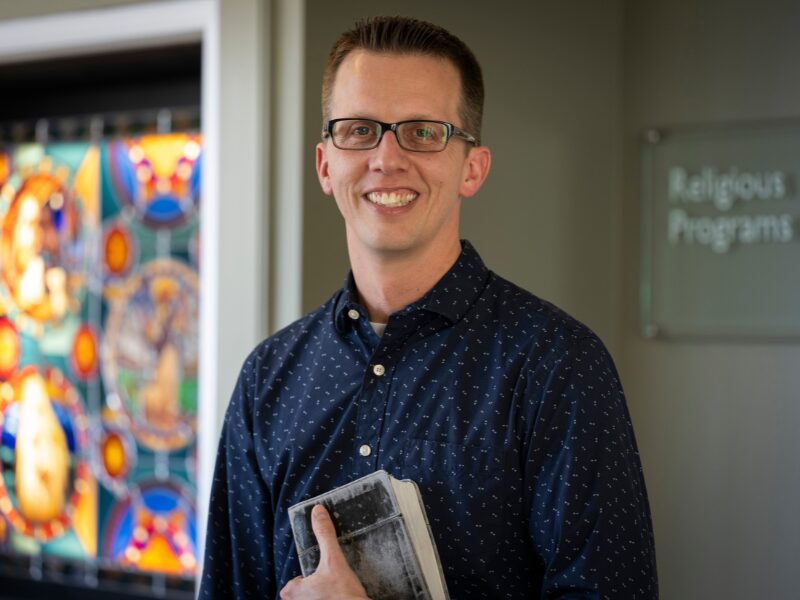Student Religious Programs
Milton Hershey School is dedicated to each student’s spiritual and moral development. Since our founding in 1909, religious programs have been a core and mandatory part of the MHS experience. These programs focus on teaching the Judeo-Christian faith, reflecting the heritage of our founders, Milton and Catherine Hershey.

Overview
Religious programs are part of the MHS student experience in all areas, including:
- The classroom
- Student homes
- Extracurricular student activities
Additionally, the Ten Commandments and the Golden Rule are displayed prominently in each student home. Students participate in daily devotionals and prayer before meals. Chapel/Junior Chapel attendance is a requirement for all students.

What the Deed of Trust Says
The MHS Deed of Trust directs us to be non-sectarian. In the context of its writing in 1909, we interpret that to mean non-denominational within the Judeo-Christian heritage, the tradition of the Ten Commandments, and the Golden Rule, the teaching of both the Old and New Testaments. It states:
“The school shall be non-sectarian, but the moral and religious training of the scholars shall be properly looked after and cared for by the Managers. No favoritism shall be shown by the Managers to any particular sect or creed.”
Review the Deed of Trust
Department of Religious Programs
Milton Hershey School’s Department of Religious Programs is led by the school’s chaplain, Pastor William Ogle. This ensures a meaningful and consistent experience for students. As part of the Home Life Division, this department oversees Chapel and Junior Chapel services and religious programs in student homes. It also coordinates off-campus worship opportunities, religious content for school assemblies, and individual and group programs and counseling in student homes and classrooms.

From the Vault: Milt Quotes
“We are non-sectarian but insist on religious instruction as a vital part of a boy’s life.”
– Milton S. Hershey, Liberty Magazine (1924)
“One evening, during WWII, while listening to a news broadcast to which Mr. Hershey listened regularly, he said to me, ‘If only people would live by the Golden Rule and the Ten Commandments, we would have no war.’ He then asked me to have copies of the Ten Commandments printed on heavy paper, about 20 by 30 inches, framed and hung above the fireplace of each cottage and farm-home. This I was pleased to have done.”
– Rudisill Dissertation (Interview with W. Allen Hammond, MHS principal, Dec. l8, 1961)






